On December 10, 2009, my father took his last breath. I was at his side, along with all seven of my brothers and sisters and our mother. The night before, all but one of us slept in his room huddled together on portable mattresses and recliners. We wanted for nothing because my dad was at Gosnell Memorial Hospice House in Scarborough, Maine. They don’t just care for the dying at Gosnell, they care for the whole family.
When he first arrived, my sister Becky promised Dad she would move right in with him and she did. Some of her memories:
The staff at Gosnell were amazing. They were like family and helped me through what, at the time, was the most difficult thing I have ever had to go through. One thing that stands out the most is how his doctor and his main nurse walked us through every little step of Dad’s journey, and as it got closer they would explain the different changes he was going through so we understood and knew what to expect or look for.
I also loved that If I needed a moment to myself there were many areas at Gosnell where I could go. My favorite place to sit was on one of the window sills, just watching the world go by (one of Dad’s favorite things, too — watching the world go by.)
Oh, and I loved the unlimited cookies that were baked daily by the chef !!
From dream to reality
Gosnell has been providing hospice care to families like ours since 2007. The dream to build the house had begun several years before.
In early 2000, the Robert Wood Johnson Foundation did a white paper on hospices around the country. It ranked Maine 49th out of 50 states for its hospice services. “We said we’ve got to do better than this,” Elaine Brady recently told me. At the time, she was Executive Director of Southern Maine Medical Center Visiting Nurses. “We wanted to look at delivering services, but also to have a special place for terminally ill people to go to.”
The end result was that two organizations, Hope Garden in York County and Horizon House in Cumberland County, merged to create the nonprofit organization Hospice of Southern Maine (HSM). Three home health agencies — Community Health Services in Portland, Southern Maine Health & Homecare Services in Kennebunk, and Visiting Nurse Services in Saco — also became involved and integrated their hospice programs into one HSM program.
“Instead of a home care agency model that offers hospice services, we wanted to have an agency that only did hospice, Elaine said. “We wanted to bring all of the service and education under one roof.”
Maine Medical Center, Southern Maine Medical Center and Maine Center for Cancer Medicine (now New England Cancer Specialists) also collaborated on the project. In 2004, Hospice of Southern Maine began providing in-home hospice services. Almost immediately, a fundraising campaign was launched to build Maine’s first and only inpatient hospice facility.
Theresa Desfosses and her family donated a parcel of land on Hunnewell Road in Scarborough. “This piece of property was owned by my parents for about 45 years,” said Theresa. “We were going to put in a housing development, but when the opportunity presented itself for hospice, for me, that was a much better use of the land.”
In 2007, Gosnell Memorial Hospice House opened its doors and its heart to its first patients. Since then it has provided care to more than 6000 patients and their families.
In the living room over the fireplace hangs a portrait of Jim and Peg Gosnell. They had both passed away long before the house that bears their name came to be. It was their children who helped make it possible. When their daughter Annette was approached about making a donation to the capital campaign, her response was, “Is that all you want?” She had been looking for a way to get involved with hospice and was immediately on board with the project.
I understand the burden of caring for somebody who is dying and the fear that you’re going to do something wrong. I also understand that not any one person dies in the same manner and I don’t mean due to disease. I mean what’s important to them, what they need, what they will or won’t ask for, and how they choose to go about it … because there are choices to be made. The work that hospice does is very important.
This was a way for us to honor our parents. Growing up there were always people at our house who needed a meal or a place to stay. As far as we are concerned, mom and dad are still welcoming people home.
It was just the frosting on the cake. They had almost all of their funding. So many people and so much work went into putting this place together and convincing other hospice groups to join. That was so much work.
Before Gosnell was built, Maine was nearly the lowest in the nation for hospice use. Only 9% of people eligible for hospice were using it. Today — thanks to the good work of Hospice of Southern Maine and strong statewide support — that number is now up to 45%, right on par with the national average.
My dad was eligible for hospice months before he died, but he was afraid to make the call. We were all afraid — because of what it signified. What happened is that after a few weeks, the doctor got his pain under control and he was able to return home. During his stay, he also had many meaningful conversations with the social worker and a chaplain and got to know the wonderful nurses and volunteers. When he had to go back he was at peace. He knew what to expect and above all, he knew he could expect kindness and respect.
My brother Bruce didn’t get to spend that last night with all of us, but we know Dad waited for him. Two hours after he arrived, he died. This is Bruce’s memory:
My story begins the day Dad passed away. Near the end, three of us noticed lots of blackbirds filling two trees right outside his window. The moment he passed, all of these blackbirds flew away as if they were taking his soul to his next journey. We talked about the birds and what they meant. Someone pulled up the song “Blackbird” by the Beatles and we quietly sang it as we all walked Dad down the hall of Gosnell House. Hearing the song always brings back a loving moment in our lives, that moment our Dad, a very influential person in our lives, passed on from this life and traveled to his next on the wings of the blackbirds.
The environment at Gosnell and its staff spiritually nurtured my heart and my mind in so many ways as we were there with our dad throughout his transformation from this life into the next.

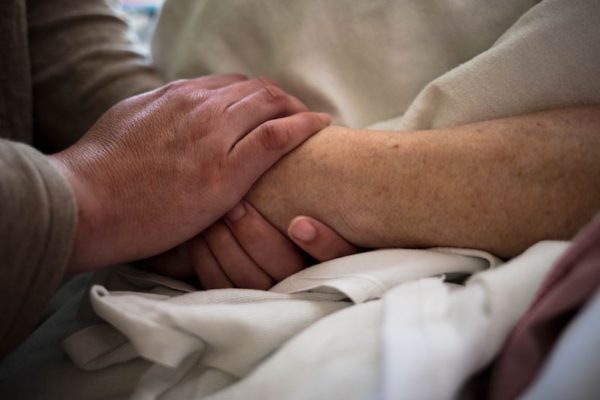
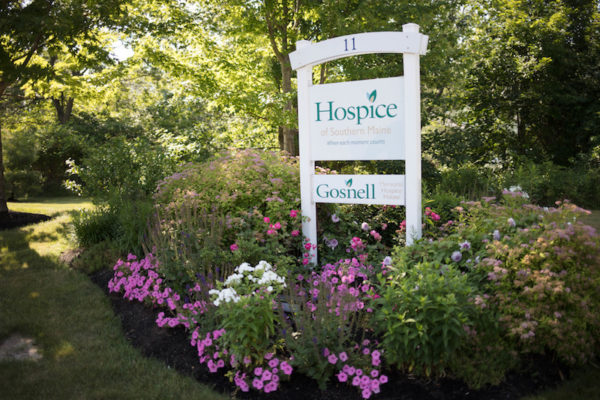
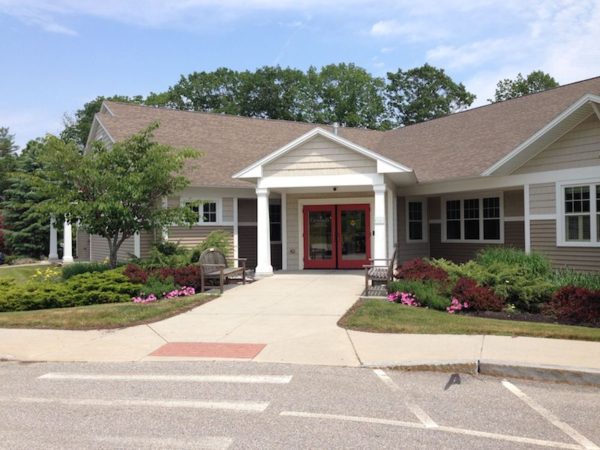
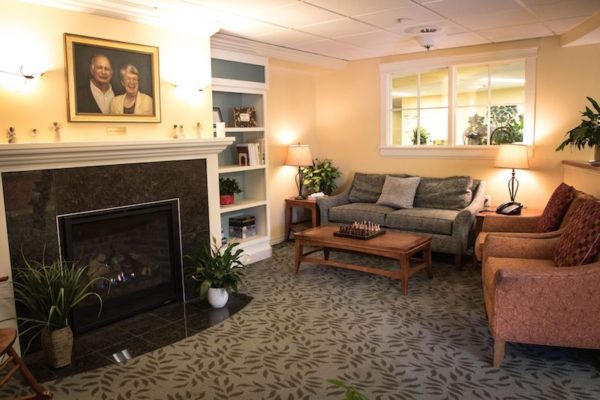
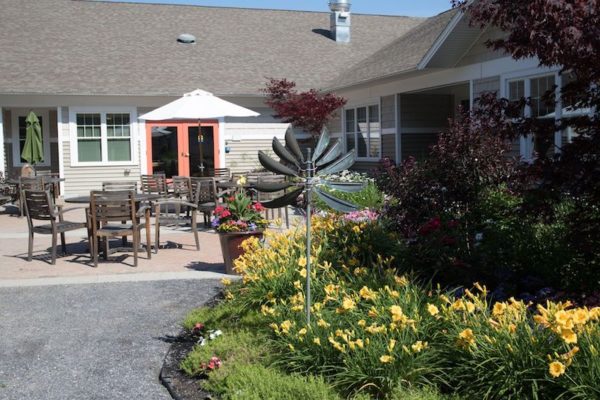
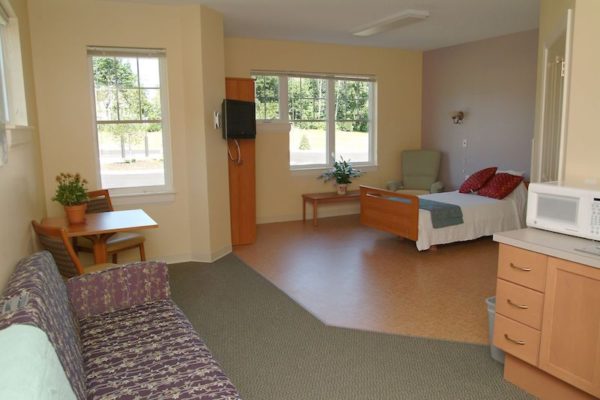
This brought tears to my eyes, Diane. What a poignant tribute to the amazing work that hospice does, and what they make possible for the dying and the people who love them. I’m glad they were there for you and your family.
Thanks Roxanne. The people who do hospice work are nothing less than angels.
I would also like to honor the late Rev. Robert Howes, for his part in bringing hospice to Southern Maine. A great family friend, he was the longtime pastor of the South Congregational Church in Kennebunkport. He had a life of service, including as a firefighter and EMT for the town.
From his obituary in the Portland Press Herald, April 2015: “After retiring as pastor of South Congregational Church, Robert trained doctors and nurses in hospice care, an almost full-time job for the next 10 years. He was instrumental in helping establish hospice care in southern Maine.”
So many wonderful people. Thank you Jeffrey.